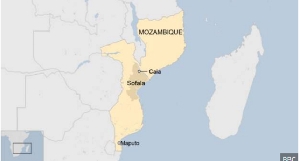- Home - News
- TWI News | TV
- Polls
- Year In Review
- News Archive
- Crime & Punishment
- Politics
- Regional
- Editorial
- Health
- Ghanaians Abroad
- Tabloid
- Africa
- Religion
- Election 2020
- Coronavirus
- News Videos | TV
- Photo Archives
- News Headlines
- Press Release
Opinions of Saturday, 9 July 2011
Columnist: Akpalu, John K.
Ghana Must Clamp Down On Internet Fraud
By
John K. Akpalu, Esq.*
Ghana and Nigeria are becoming synonymous with internet fraud as a Google search will reveal. Last month, at a town hall meeting in New York City with the Vice President His Excellency John Dramani Mahama, I raised the serious issue of internet fraud in Ghana. Whilst his response showed that the government was grappling with the problem, it also showed that most Ghanaians were not aware of how sophisticated this crime had become.
There still persists the notion that most of those foreigners being scammed in internet fraud scams – also called 419 or Sakawa - are greedy persons eager for quick riches. This is no longer the case. The criminals no longer send cheap emails saying someone has died in a plane crash leaving millions of dollars or that the son of a deceased African dictator with hidden millions is willing to transfer the money into a foreigner’s bank account for a share. The scammers know that foreigners no longer fall for these cheap scams. Hence the more sophisticated varieties.
An Indian company which manufactures cocoa sacks and has a website receives an “offer” from the Cocoa Marketing Co. (Gh) Ltd (CMC) on official letterhead to supply Ghana with 200,000 cocoa sacks. Their marketing manager calls the number on the letterhead and gets through to someone impersonating an official of the CMC. Then comes other fraudulent but official looking documents until the Indian company becomes convinced that the transaction is genuine. This is followed by demands for various fees to various agencies in Ghana, all backed up by official looking but forged receipts. The crooks invite the company to send a representative to Ghana to sign the formal contract. The representative arrives in Ghana only to be picked up by the crooks to his hotel and eventually fleeced of more money. I know this because of email communication I received from one such victim.
A lonely retiree in the US who has just lost his wife goes on an internet dating site such as match.com and strikes up a friendship with a single Filipino nurse who is spending time in Ghana helping children in an orphanage. The picture the retiree saw was actually a picture of someone clipped from the internet and used in the scam. The lady expresses a desire to visit him in the US and starts demanding money for a plane ticket and to secure a US visa. On the day of departure Ghana immigration would not allow her to board the plane because she needed to carry some money on her. Any skepticism is answered with an official letter from the Ghana Immigration Service. Anyone who doubts this should go to the Ghana Immigration Service website and see a banner warning people of this crime. The woman then tells the retiree that she was bringing some gold with her to the US and had been arrested for not paying tax on it. Would Mr. Retiree send her money to pay off the police and to pay the tax so that she can reimburse him when she sells the gold in the US? This scam is again supported with fake documents: a fake passport, a fake US visa, a fake letter from the Ghana Immigration Service, a fake letter from the Internal Revenue Service and from the Ghana Police. Some of these criminals would have their colleagues steal the passport and identification documents of people in other countries such as the Philippines, Thailand, and Malaysia etc to use in impersonating these individuals in the 419 or Sakawa fraud. I know because I have seen some of these documents.
The range of official but fraudulent documents used in these schemes ran the gamut and purportedly comes from the ministries, the courts, parliament, the police and customs.
As part of its quest to become a middle income country in the near future, Ghana has opened its doors to international commerce and investment, which efforts are being directly undermined by the number of fraudulent documents issuing from the country. There is also the tragic aspect of these internet scams driving many victims to despair, debt and bankruptcy and some to take their own lives.
Last year, a British man, Philip Hunt, who suffered from depression and had had two failed marriages, killed himself by lying in front of a moving train after he was bilked of £82,000 by a romance scammer called “Rose’ from Nigeria. Also last year, a father Al Circelli, of Yonkers, New York shot himself in the head after he was robbed of $50,000 by an internet romance scammer from Ghana who called herself Aisha.
These scams do nothing for Ghana’s image as a desirable tourist destination. I believe that only a minority of these scams are being perpetrated by Ghanaians. Letterheads reading “Federal Republic of Ghana,” with signatories Chinedu and Eke, gives one a good idea where these scammers are from. These foreigners have set up shop in Ghana because most victims will no longer respond to scam email from their home countries. Unless Ghana does something very soon, we run the risk of being shunned by the international community.
Combating internet crime in Ghana should not be difficult if the government concentrates on the main facilitators - the major one being WESTERN UNION and its lax money transfer system. To think that in this day and age of international money laundering and financing of terrorism, anyone, even with a fake name and identity can walk into a western union office or its affiliate and pick up several thousand dollars with minimal check is negligent, to say the least. Government should mandate that henceforth anyone picking up more than $1,000 in Western Union transfer funds should provide a driver’s license or passport and in cases of very large sums, must be digitally photographed and the picture saved by the company and made available to law enforcement upon request.
Some of the victims of cyber crime have lost money through bank transfers. It appears that some banks in Ghana are either lax in opening accounts or that some of their staff have colluded with these criminals in duping foreigners. Government should enforce tougher standards for banks and where it is proven that bank personnel have aided in internet fraud by facilitating the opening of fraudulent accounts, they should be prosecuted.
Government must vigorously pursue the current SIM card registration exercise and weed out all fraudulently registered numbers. These scammers use cellular phones which are either unregistered or fraudulently registered, or registered to other people. Once the SIM card registration exercise is successful and all cellular calls can be traced to particular individuals, these cyber-criminals can quickly be located and arrested by the police.
Institutionally, the Ghana Police Service and must have an effective and well trained internet crime unit to perform sting operations and hunt down and arrest these criminals. The Ghana Police Service website must have a bold banner on the home page with an internet address and a phone number for anyone who believes he or she is being scammed to contact. The cyber crime unit will then work with the victim to set up the cyber criminals in a sting operation in Ghana and arrest them. Many victims have told me that they contacted the Ghana Police but did not receive any response or cooperation.
Most cyber criminals use internet cafes. The government should seriously think about licensing internet cafes – if it does not do so already – and imposing on them a requirement to ensure that their computers are not used for 419 scams or Sakawa. There are repeated stories of cyber criminals renting dedicated computers at internet cafes for days with the proprietors fully aware of, but turning a blind eye to their activities.
Last year when I was back home in Ghana with my family, I went to one such internet café with my wife. As I entered, right in front of me and on a computer facing the internet café proprietor was a man who had clipped the picture of an Asian woman from the internet and was using software to pose it in front of a photograph of the Ghana Independence Square. Immediately, I intentionally remarked to my wife and to the hearing of the man that he was changing the picture to use in an internet scam. At this point the man became very nervous and within a short time left the café.
One hopes that the government acts on the above recommendations and eventually stems the tide of this insidious crime which is fast eroding Ghana’s image.
John K. Akpalu, Esq. The writer is a practicing attorney in New York and also has a Law Office in Ghana.










